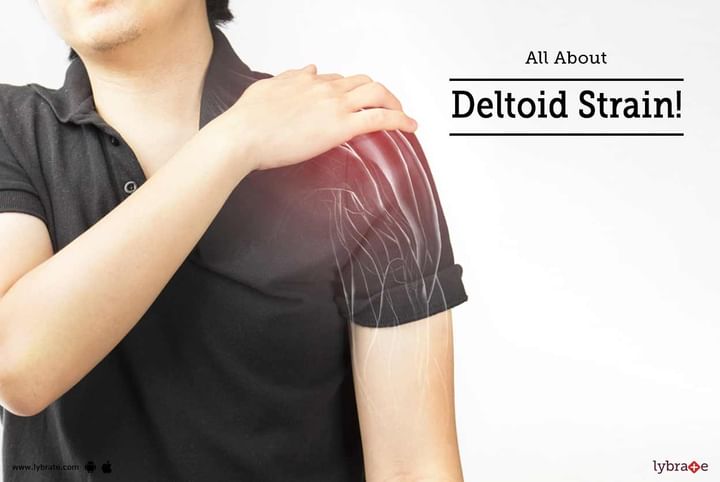All About Deltoid Strain!
The deltoid muscle is situated around the shoulder joint that makes up the shoulder. It is classified into three parts - front, side and rear deltoids. It is one of the most frequently used muscles in the body, its major functions are abduction and forward elevation of the arm.
Causes
A deltoid strain is a condition where you experience pain and tenderness in the shoulder area due to various causes like overuse of the deltoid muscle. It is very common in weightlifting and various sports such as cricket. It may even lead to partial loss of function in the deltoid muscle. Deltoid strain may be caused due to overworking of the muscle without adequate rest. It may also be caused due to lengthening of the deltoid muscle under stress or direct trauma to the muscle.
There are three types of deltoid strains
- Grade 1 deltoid strain: It is characterized by tight muscles with some possible swelling. There may be mild pain when you use your shoulders for any activity.
- Grade 2 deltoid strain: This strain is a result of a major injury to the deltoid muscle; there may be visible swelling and pain while carrying out activities that require movement of the shoulder. Lifting your arm to the front or the sides becomes difficult and painful.
- Grade 3 deltoid strain: This form of deltoid strain is the most severe of the three; it may cause the shoulders to become immobile. You usually will experience excessive pain and severe swelling. You might not be able to move your arm and carry out any activity that requires the shoulders.
Diagnosis
The diagnosis of a deltoid strain starts with a physical exam where the doctor will understand the symptoms of the deltoid strain. Various imaging tests such as x-rays may be required for the diagnosis. The basic treatment for shoulder strain comprises of the RICE protocol (rest, ice, compression and elevation) which is used to treat grade 1 and grade 2 strains. Grade 3 strains may require surgery in addition to the above treatment methods. In case of excess pain, the doctor may prescribe non-steroidal anti-inflammatory drugs to ease the pain.



+1.svg)
